Overview
This article underscores the vital advantages of enrolling in a wine marketing online course, spotlighting its pivotal role in deepening understanding of digital promotion strategies and direct-to-consumer sales techniques. By empowering participants with the necessary skills to navigate shifting market trends and consumer preferences, these courses enable vineyards to significantly enhance their marketing effectiveness and overall profitability. As the wine industry evolves, adapting to these changes is not just beneficial; it is essential for sustained success.
Introduction
The world of wine marketing is undergoing a dramatic transformation, propelled by the rise of direct-to-consumer (DTC) strategies that empower family-owned wineries to not only survive but thrive in an increasingly competitive marketplace. As these vineyards strive to enhance their market presence and profitability, the advantages of enrolling in a wine marketing online course become increasingly evident. Yet, amidst a myriad of challenges and evolving consumer preferences, the pressing question remains: how can producers effectively navigate this complex landscape to ensure their growth and sustainability?
Enocap: Transform DTC Strategies for Family-Owned Wineries
Enocap is at the forefront of revolutionizing direct-to-consumer (DTC) strategies for family-owned vineyards. By prioritizing the establishment of robust sales channels, enhancing wine club memberships, and executing effective demand generation strategies, Enocap empowers producers to excel in a competitive landscape. The firm’s data-driven approach has yielded significant e-commerce growth, with clients reporting an average increase of 191% in online sales. This achievement underscores the potency of tailored DTC strategies in bolstering vineyard profitability and securing their future.
Industry leaders stress the importance of cultivating strong sales channels. For instance, businesses that refine their pricing strategies and strengthen relationships within the on-premise sector are distinctly better positioned for future expansion. According to the 2025 Direct-to-Consumer Wine Report, enterprises that derive 70% of their operations from DTC are markedly more profitable than those that primarily rely on wholesale distribution.
Case studies further demonstrate the transformative impact of DTC sales channels on vineyard growth. Smaller producers, who often depend heavily on DTC shipping, have seen their revenue streams flourish through direct consumer engagement. This interaction not only amplifies immediate sales but also nurtures long-term , which is critical for sustainable growth in an ever-evolving market.
Nonetheless, vineyards encounter challenges, such as shipping obstacles that can jeopardize their success in reaching wine club members and potential new customers. Enocap addresses these hurdles with innovative DTC strategies, including demand generation and customer retention programs, ensuring that family-owned businesses can thrive. This dedication is reflected in Enocap’s ability to deliver measurable results, establishing the firm as an essential ally for those aiming to enhance their market presence and secure their legacy.
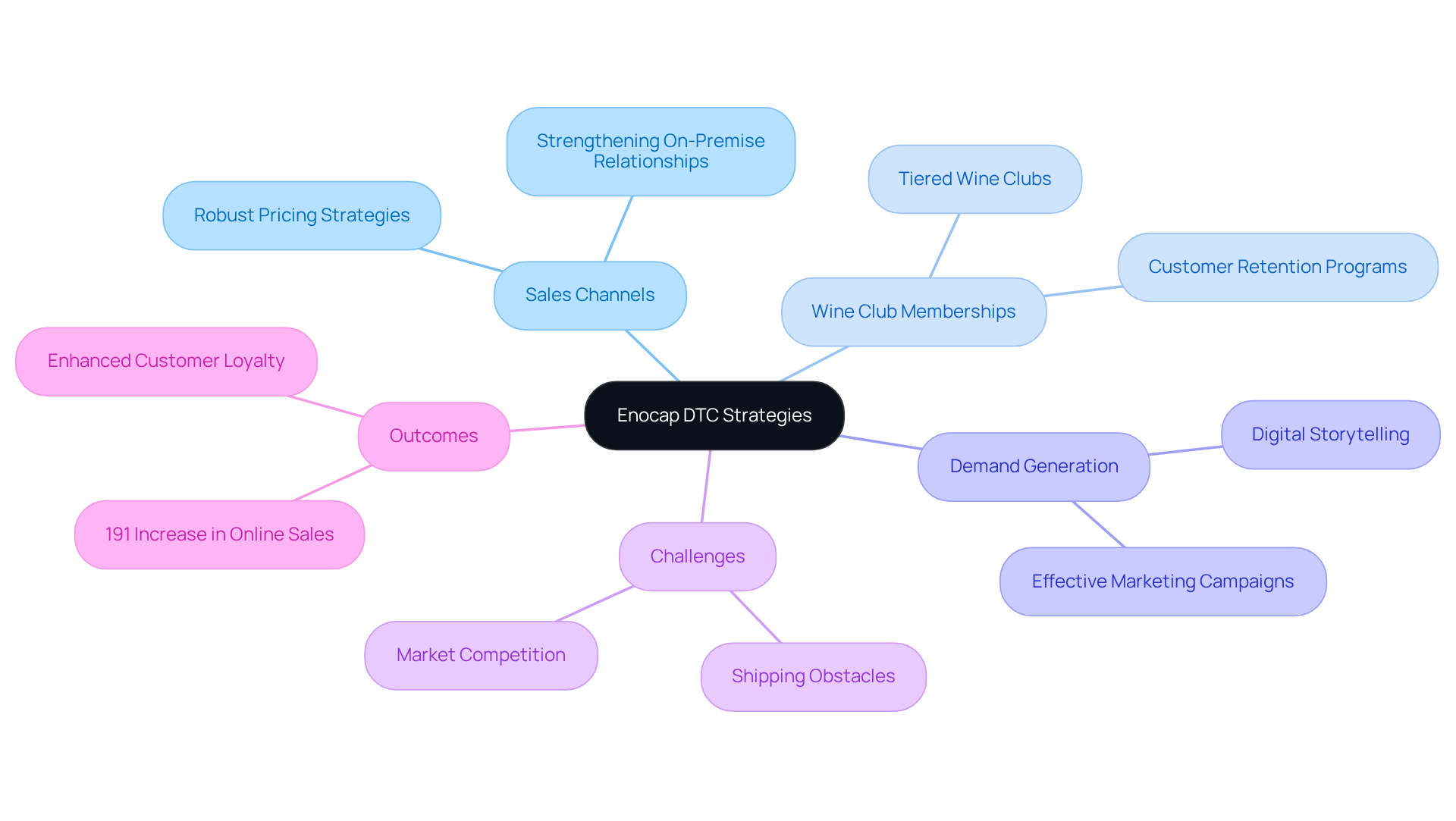
Enhance Brand Storytelling to Connect with Consumers
Enhancing brand storytelling is essential for vineyards seeking to establish deeper connections with consumers. By sharing their history, values, and the distinctive traits of their products, wineries can cultivate a memorable brand identity that resonates with today’s eco-conscious and experience-driven consumers. Research indicates that narrative-driven tastings can significantly enhance customer engagement and foster positive memories, increasing attention spans by over 30%. This heightened involvement not only attracts customers but also nurtures loyalty, rendering storytelling a .
Numerous successful examples exist within the industry. For instance:
- Bodega Catena Zapata adeptly combines traditional marketing with social media to engage both consumers and trade.
- Eleven Eleven Wines has pivoted towards wellness-oriented messaging, resulting in remarkable attendance at their events.
These strategies underscore how storytelling can bolster consumer connection, driving both engagement and sales.
As younger consumers increasingly seek brands that embody their values—especially concerning sustainability and craftsmanship—producers must prioritize authentic narratives that highlight these attributes. By establishing sustainable direct-to-consumer pathways and employing effective methods to convert casual purchasers into devoted club members, vineyards can attract new clientele while retaining their most passionate advocates, thereby securing lasting success in a competitive marketplace. Furthermore, by integrating innovative direct-to-consumer approaches and strategic capital planning, family-owned vineyards can enhance their growth and loyalty, ultimately thriving for generations.
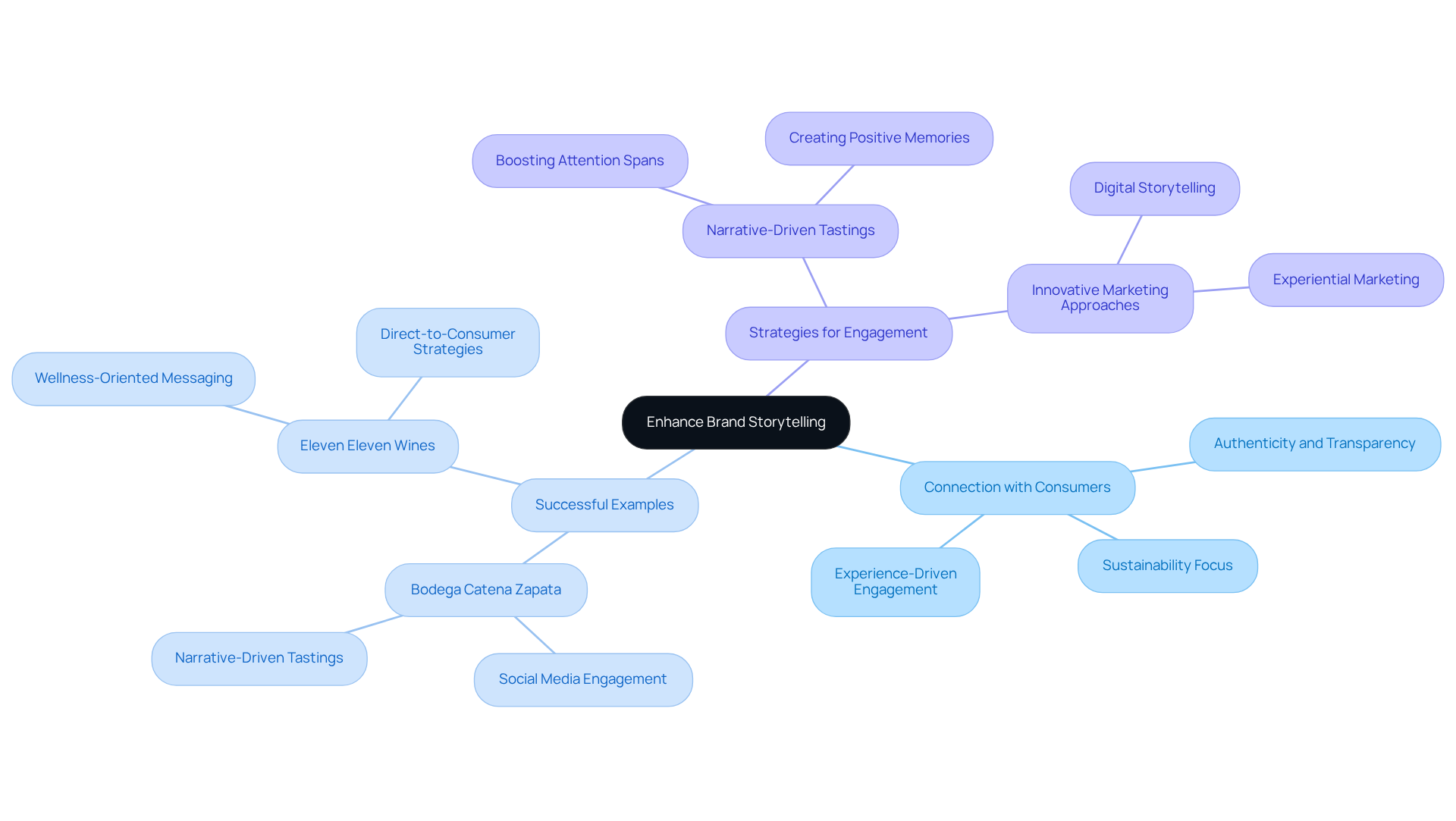
Learn Effective Demand Generation Techniques for Wine Sales
Mastering effective demand generation techniques is crucial for vineyards that are enrolled in a wine marketing online course to enhance their sales performance. This entails utilizing digital promotion strategies, engaging social media campaigns, and targeted promotions, such as a wine marketing online course, to attract new customers.
With experiencing a remarkable 32% rise during the pandemic, producers must adapt to this shift by understanding consumer behavior and preferences. Notably, Enocap clients saw an average e-commerce increase of 191% in 2020, underscoring the potential success of effective digital strategies.
By establishing sustainable direct-to-consumer channels and converting casual purchasers into dedicated club members, vineyards can create predictable revenue and foster consistent growth. Customizing promotional efforts to resonate with their audience is essential; successful campaigns often incorporate high-quality visuals and genuine storytelling, which not only capture attention but also foster emotional connections with consumers.
As Doug Frost, co-owner of Echolands Winery, emphasizes, modern storytelling through platforms like Instagram is vital for engaging consumers. Furthermore, as online promotion continues to advance, vineyards that adopt these transformative DTC strategies will be better positioned to thrive in a competitive environment, especially when applying knowledge from a wine marketing online course. However, they must also navigate challenges in effectively implementing these digital marketing techniques.
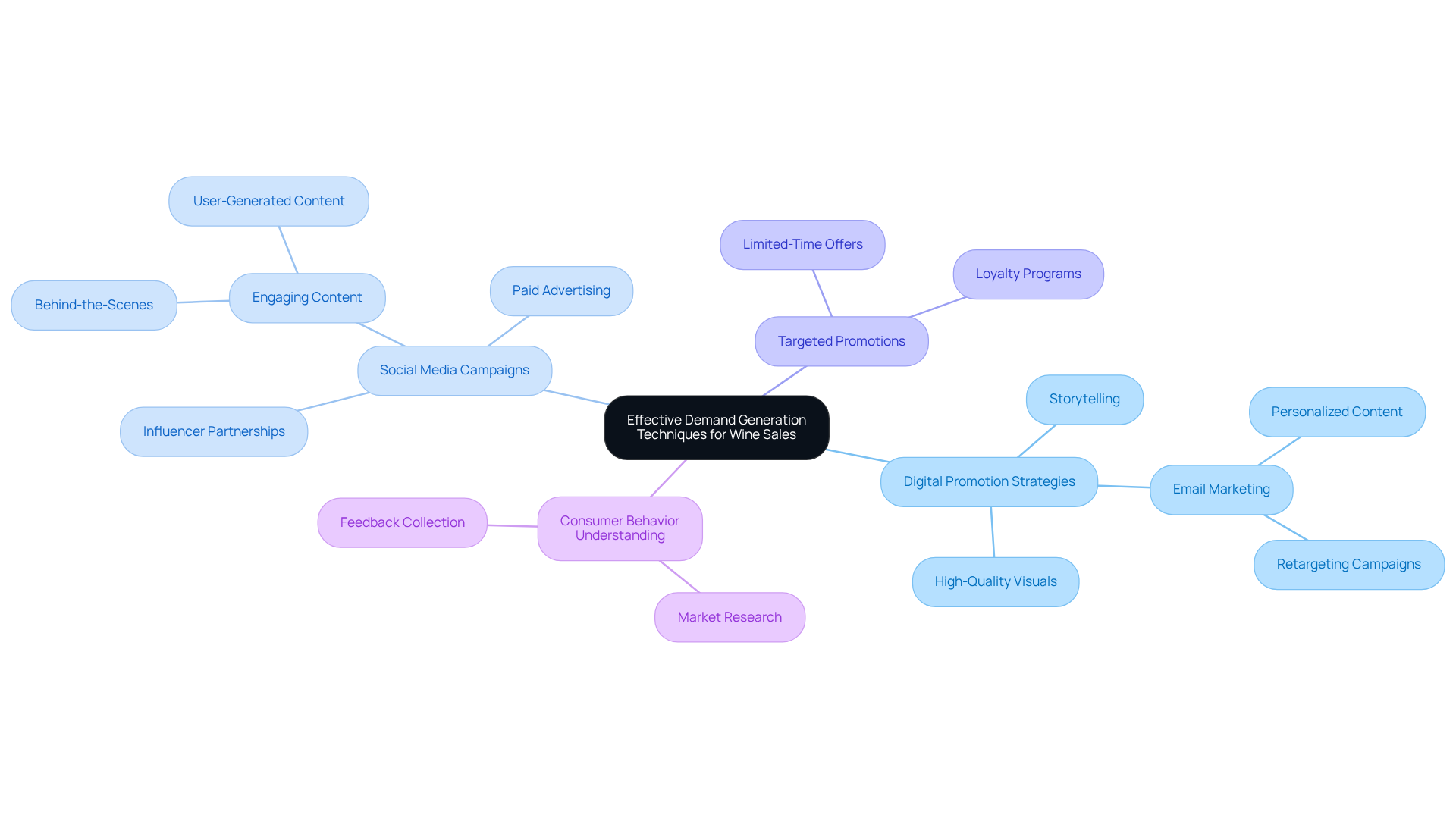
Adapt to E-Commerce Trends in the Wine Industry
Adapting to e-commerce trends is essential for wineries aiming to broaden their market reach by taking a wine marketing online course. The online beverage sales landscape is experiencing significant growth, with e-commerce alcohol sales projected to reach 6.2 billion USD globally. In 2022, the e-commerce share of wine sales rose from just 0.3% in 2018 to nearly 3%, indicating a robust shift towards digital purchasing. To capitalize on this trend, vineyards must prioritize website optimization as part of their wine marketing online course, ensuring a seamless user experience that caters to the increasing number of consumers who prefer shopping online.
Enhancing website functionality is crucial; 60% of users are unlikely to return to a site that is difficult to access on mobile devices, and 40% may visit a competitor's site instead. Wineries should adopt , simplify checkout procedures, and ensure that their websites are visually attractive and user-friendly as they learn from a wine marketing online course. Additionally, leveraging social media platforms can significantly drive traffic and engagement, as 55% of millennials consider social media their primary source for shopping information.
Successful online sales approaches for wineries can be enhanced through a wine marketing online course that involves leveraging user-generated content (UGC) to establish trust and credibility. For example, Kent Street Cellars recorded an average product rating of 4.83 after incorporating UGC into their promotional strategy. Furthermore, personalized marketing approaches, such as those employed by Nocking Point Wines, have resulted in a threefold increase in conversion rates, demonstrating the effectiveness of tailored customer engagement.
Moreover, vineyards can unlock direct-to-consumer revenue by crafting compelling brand narratives that resonate with their audience, transforming casual buyers into loyal club members through proven strategies. It is also essential for wine producers to engage in strategic capital planning to secure the right funding for sustainable growth. By understanding consumer preferences and adapting to the evolving online sales landscape through a wine marketing online course, producers can enhance their offerings and improve sales, ensuring they remain competitive in a rapidly changing market. Wineries are encouraged to adopt these approaches to enhance their online potential and secure the appropriate funding for a wine marketing online course that supports sustainable growth. Consider starting with a thorough assessment of your current online presence and identifying areas for improvement to effectively engage your target audience.
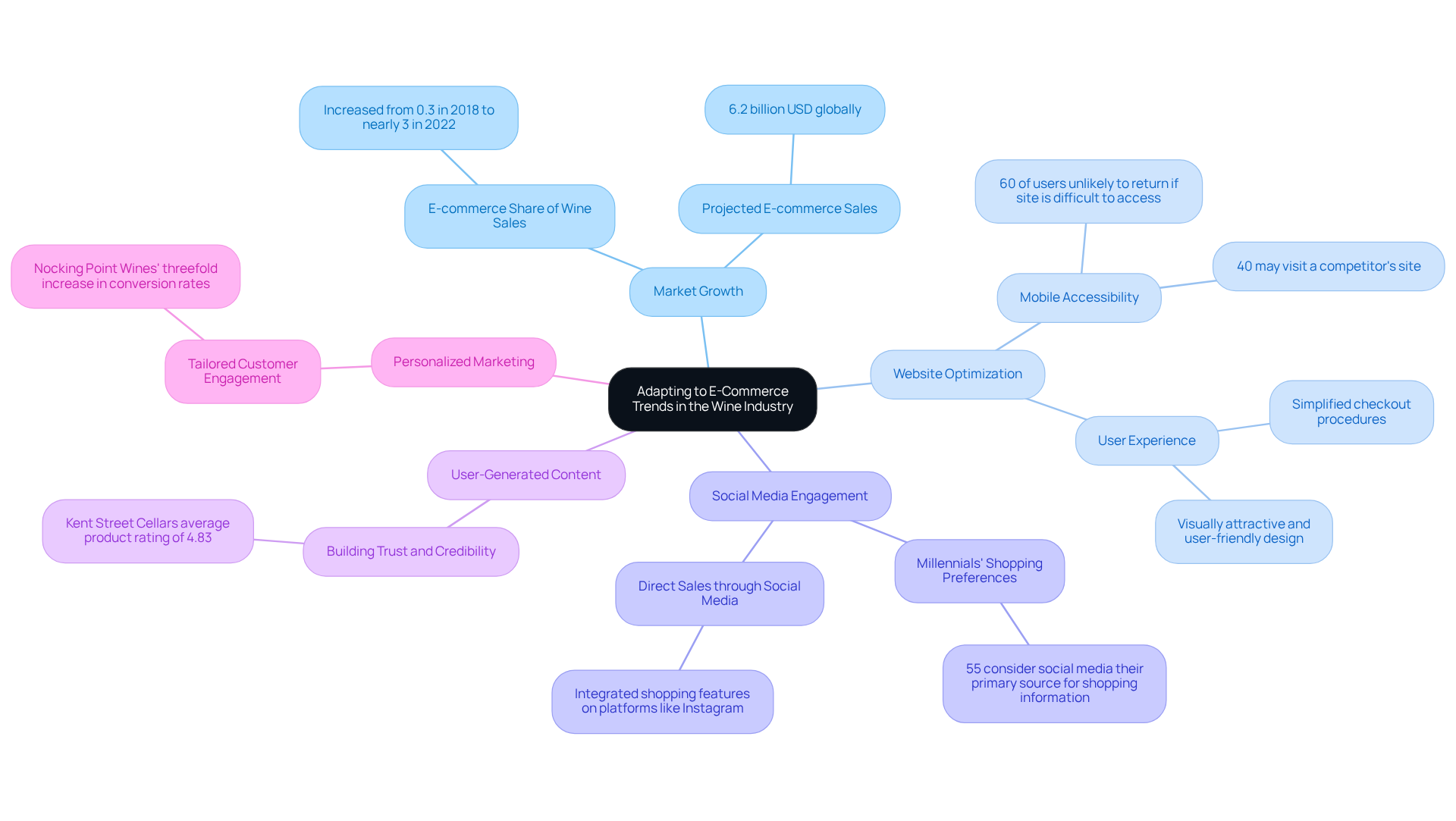
Boost Customer Retention with Tailored Marketing Strategies
Enhancing customer retention through tailored marketing strategies is essential for businesses seeking to excel in a competitive landscape. Personalized email campaigns, loyalty programs, and exclusive offers for wine club members can significantly enhance the customer experience in a wine marketing online course. For instance, establishments that implement loyalty programs frequently see retention improvements of 18-24% within the first year. Furthermore, clubs that provide at least three non-product benefits report 22% higher retention rates compared to those that concentrate solely on product offerings.
In 2025, the significance of personalized marketing is paramount. Existing customers typically spend 67% more on average than new customers, underscoring the value of nurturing ongoing relationships. By leveraging customer data to craft targeted campaigns, wineries can effectively engage their members and stimulate repeat purchases by utilizing a wine marketing online course. Successful loyalty programs, such as those integrated with platforms like WineWallet, have demonstrated increased customer engagement and satisfaction, resulting in double the expected sign-ups for clubs. This highlights the effectiveness of Enocap's .
Moreover, tailored marketing strategies not only bolster customer loyalty but also propel sales growth. Research indicates that enhancing wine club membership and customer retention by just 5% can lead to a profitability increase of 25% to 95%. By focusing on creating unforgettable experiences and fostering emotional connections, producers can transform casual purchasers into dedicated supporters, utilizing Enocap's expertise in brand storytelling and strategic financial planning to ensure lasting success in the direct-to-consumer market.
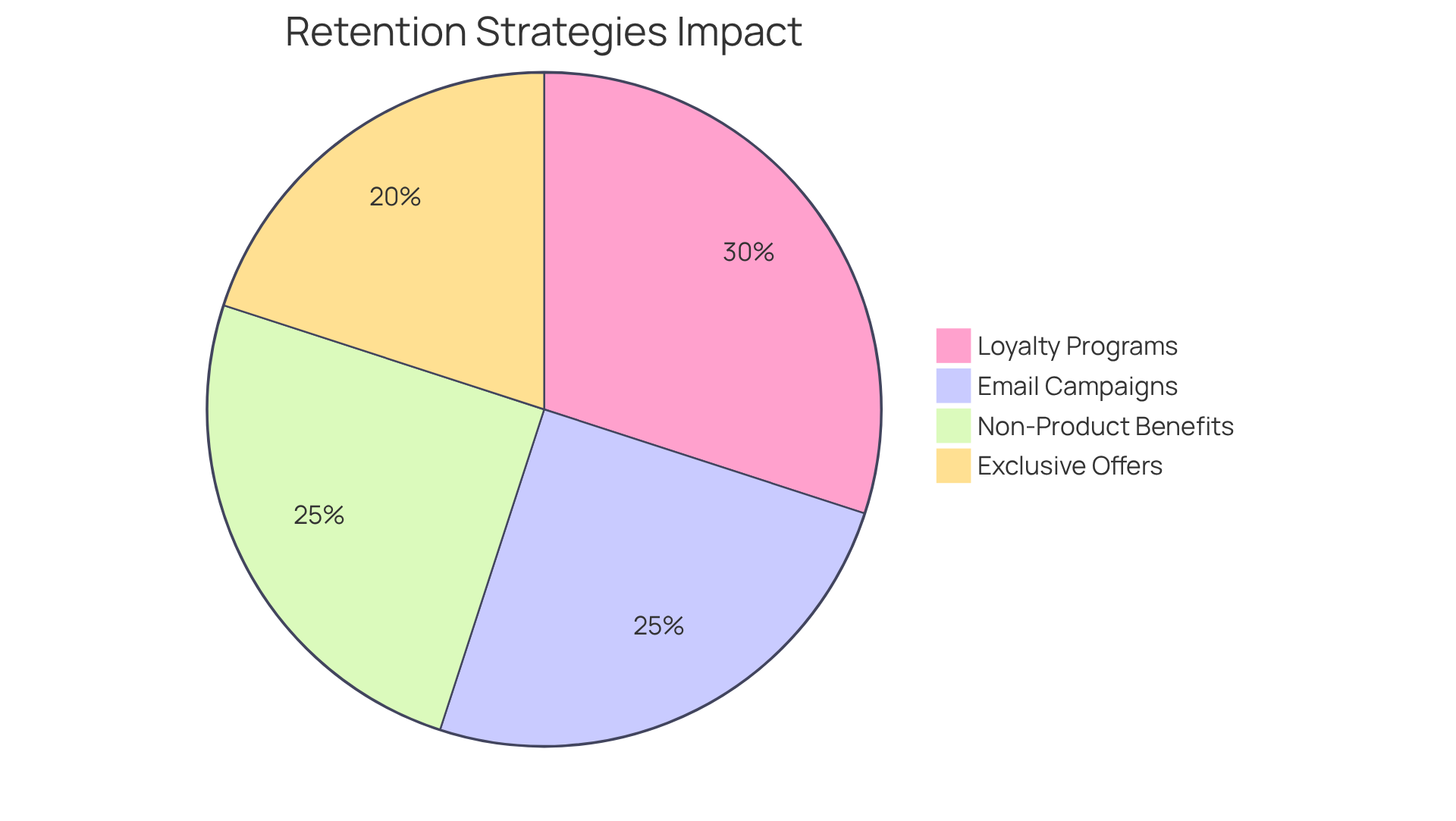
Utilize Data-Driven Insights for Strategic Marketing
Harnessing data-informed insights empowers vineyards to make informed promotional decisions and develop innovative direct-to-consumer (DTC) strategies. By meticulously analyzing customer data, sales trends, and market dynamics, wineries can customize their promotional efforts to resonate with consumer preferences, ultimately driving predictable DTC revenue. This tailored approach not only enhances promotional effectiveness but also significantly boosts return on investment.
For example, Ehlers Estate effectively employed data segmentation to pinpoint target customers, resulting in sold-out events and increased engagement levels. Furthermore, with 72% of consumers responding positively to personalized promotional messages, as underscored by industry research, the importance of understanding customer demographics and purchasing behavior is paramount.
As vineyards adapt to the evolving landscape, leveraging data analytics will be crucial in refining their marketing strategies, enhancing customer satisfaction, and fostering loyalty. This strategic emphasis on will enable family-owned wineries to flourish for generations, unlocking growth opportunities through tailored capital planning and compelling brand storytelling.
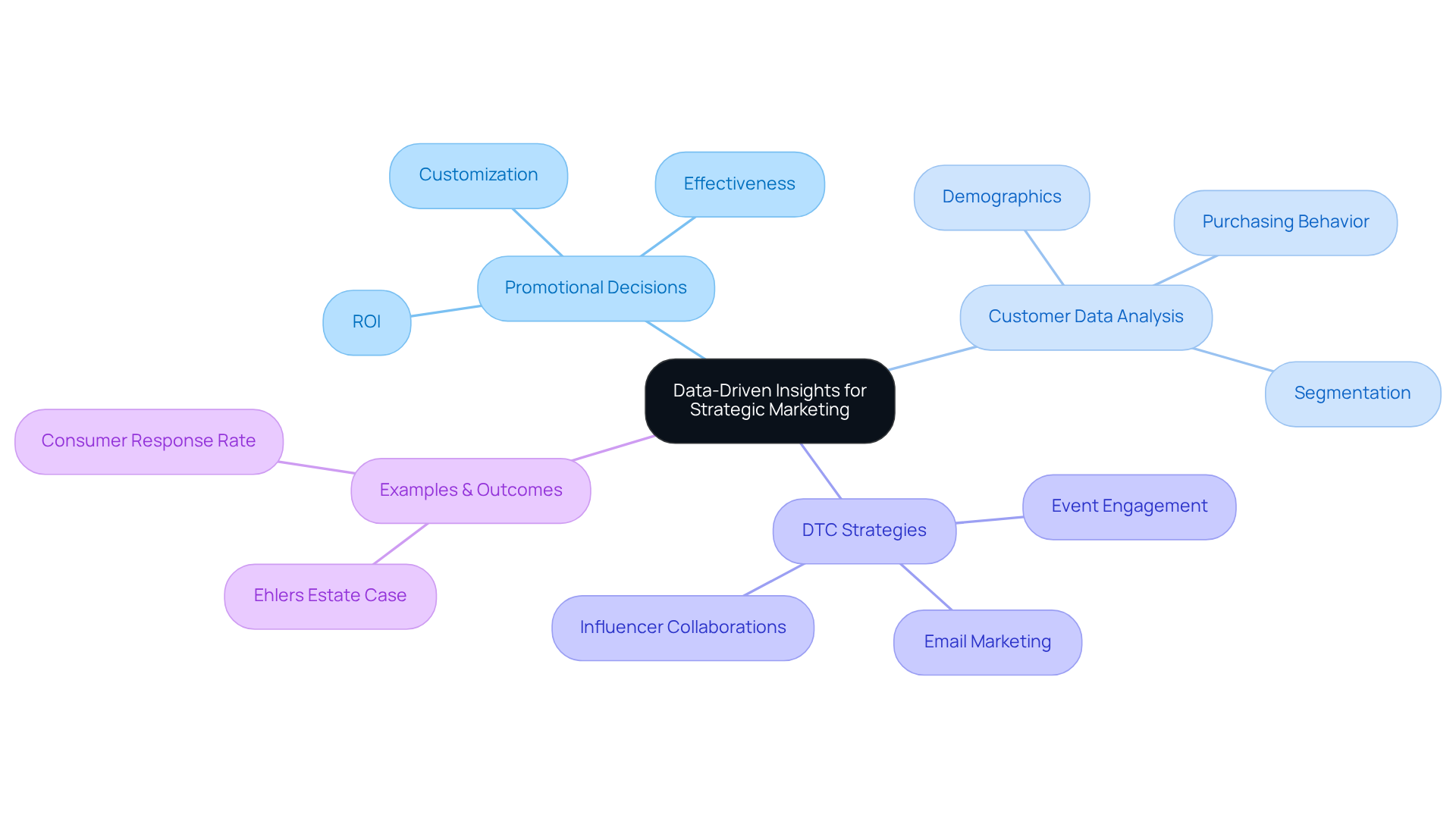
Network with Industry Professionals for Career Growth
Networking with industry professionals is crucial for advancing careers in the beverage sector, especially for those focused on implementing effective direct-to-consumer strategies. Engaging in industry events, such as the upcoming Sovos ShipCompliant Wine Summit—celebrating its 20th anniversary and featuring a comprehensive education program with 17 seminars—provides invaluable opportunities to connect with key players and gain insights into market trends.
These gatherings not only foster relationships but also grant access to mentorship, job openings, and that can significantly enhance career trajectories. For instance, the Wine Sales Symposium emphasizes actionable insights and networking, allowing attendees to forge connections that may lead to new business relationships and collaborations.
Furthermore, involvement in professional groups and active participation on social media platforms can amplify these networking efforts, establishing a robust support system essential for success in beverage marketing. As the industry evolves, leveraging these connections becomes increasingly vital for navigating challenges and seizing growth opportunities, particularly in the context of Enocap's strategic capital advisory services that assist family-owned wineries in enhancing cash flow and long-term growth.
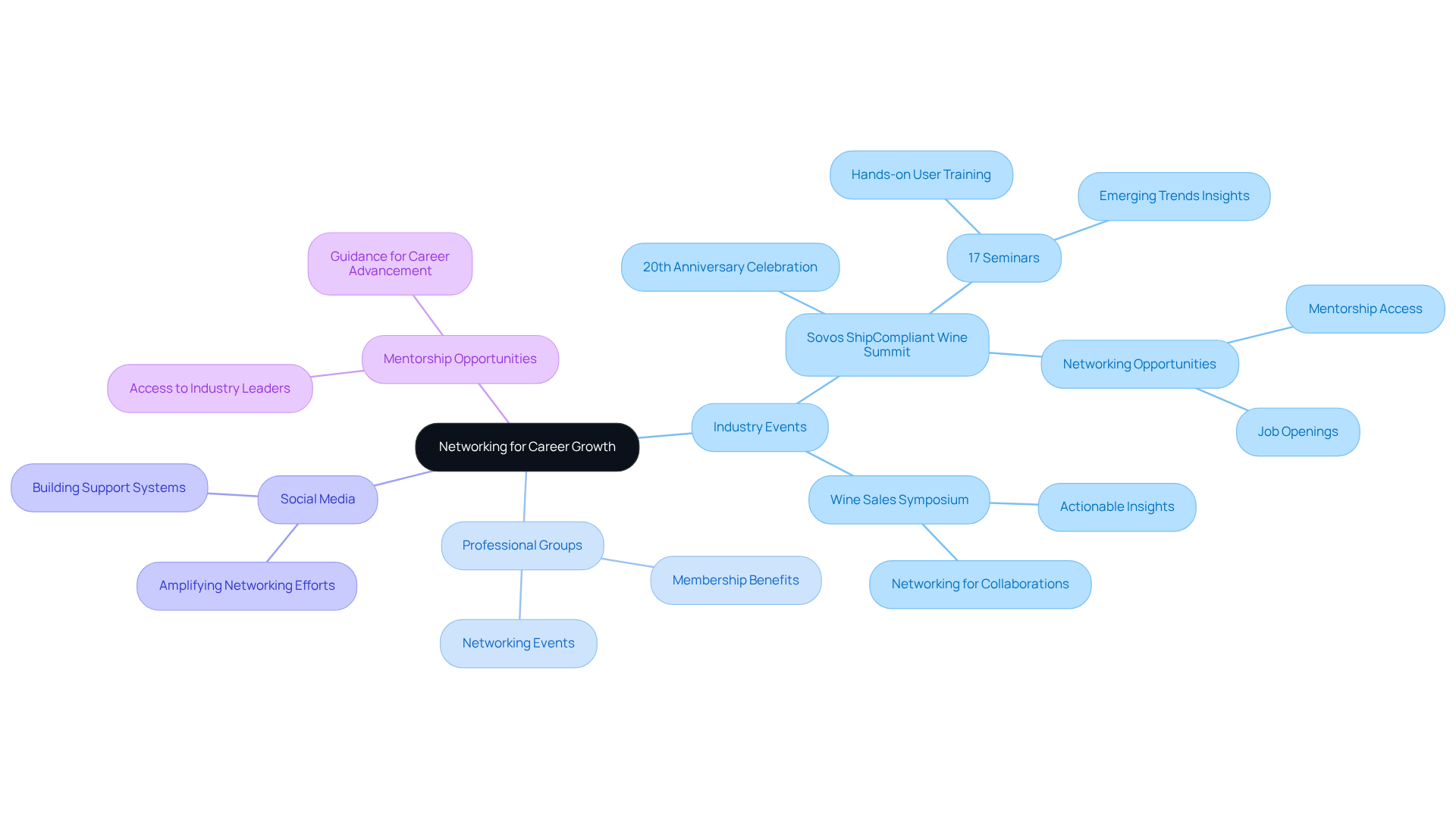
Enjoy Flexible Learning Options to Fit Your Schedule
Flexible learning options, such as the wine marketing online course, stand as a cornerstone for aspiring marketers in the beverage industry, enabling them to pursue education at their own pace while seamlessly aligning with direct-to-consumer strategies. Online courses, such as a wine marketing online course, webinars, and self-paced modules empower individuals to enhance their skills without disrupting personal or professional commitments. This accessibility proves particularly vital in the wine industry, where professionals often juggle multiple responsibilities, especially when engaging in a wine marketing online course.
Programs such as the WSU Wine Certificate and MasterClass courses exemplify organized education that accommodates hectic schedules, equipping marketers with invaluable insights and practical skills that directly contribute to their businesses' growth. As the sector evolves, the ability to adapt through a wine marketing online course becomes increasingly essential for marketers to stay competitive and informed about the latest trends and approaches. This adaptability ultimately supports tactical capital planning and that Enocap champions for family-owned wineries.
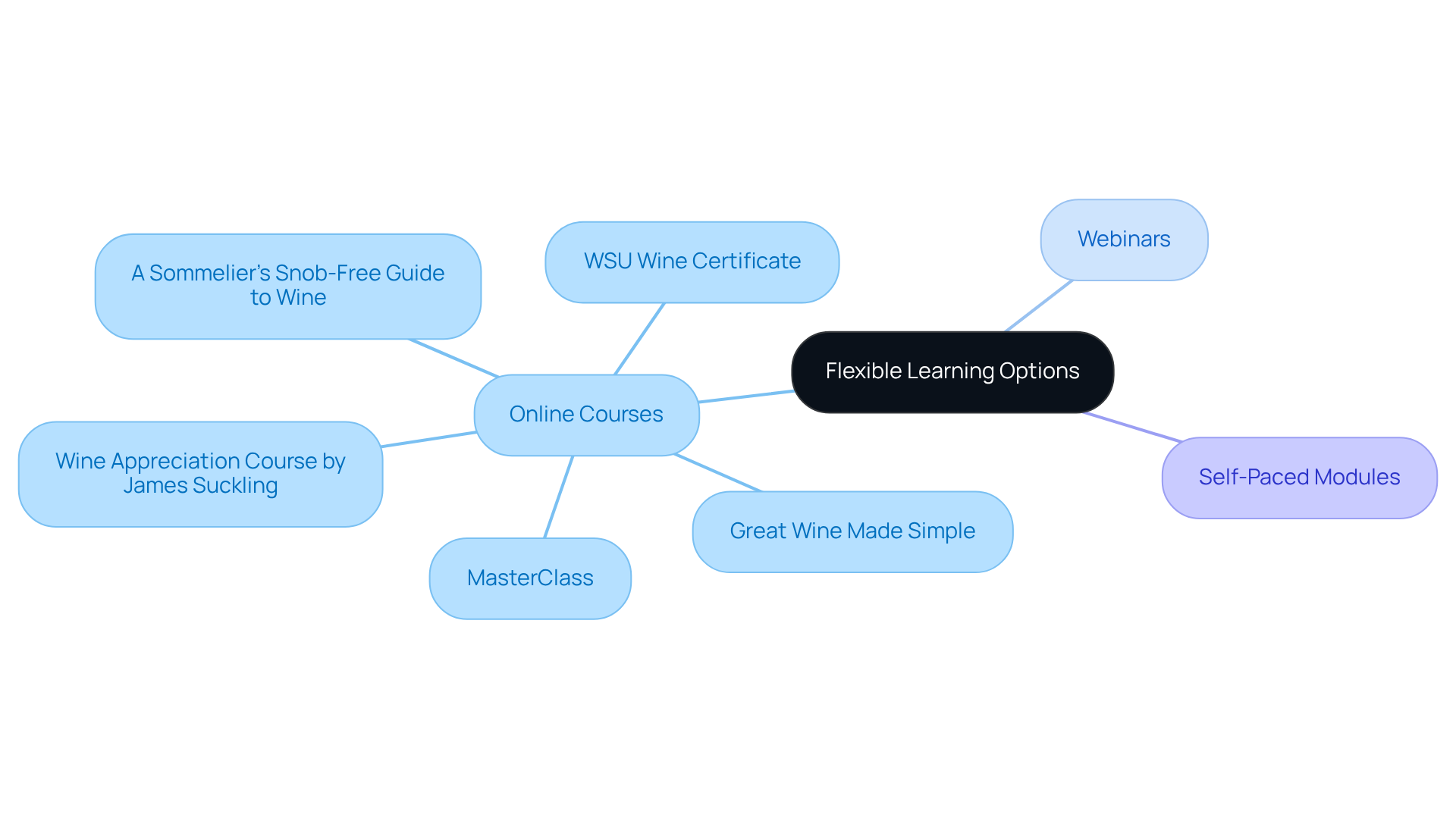
Gain Comprehensive Knowledge of Wine Marketing Strategies
Gaining a comprehensive grasp of techniques from a wine marketing online course is crucial for success in the field. This understanding encompasses insights into consumer behavior, particularly as . Mastering digital promotion techniques is essential, and enrolling in a wine marketing online course can help utilize platforms like Instagram and TikTok as key avenues for connecting with beverage enthusiasts and fostering brand loyalty.
Furthermore, enrolling in a wine marketing online course can teach you to craft effective promotional campaigns that significantly enhance visibility and sales. Enocap's transformative DTC approaches emphasize the creation of sustainable direct-to-consumer channels that encourage consistent growth, converting casual buyers into devoted club members through established methods.
A robust education in these areas, including a wine marketing online course, prepares individuals for various roles within the industry, equipping them with the skills necessary to navigate the complexities of contemporary marketing while leveraging strategic capital planning for growth opportunities.
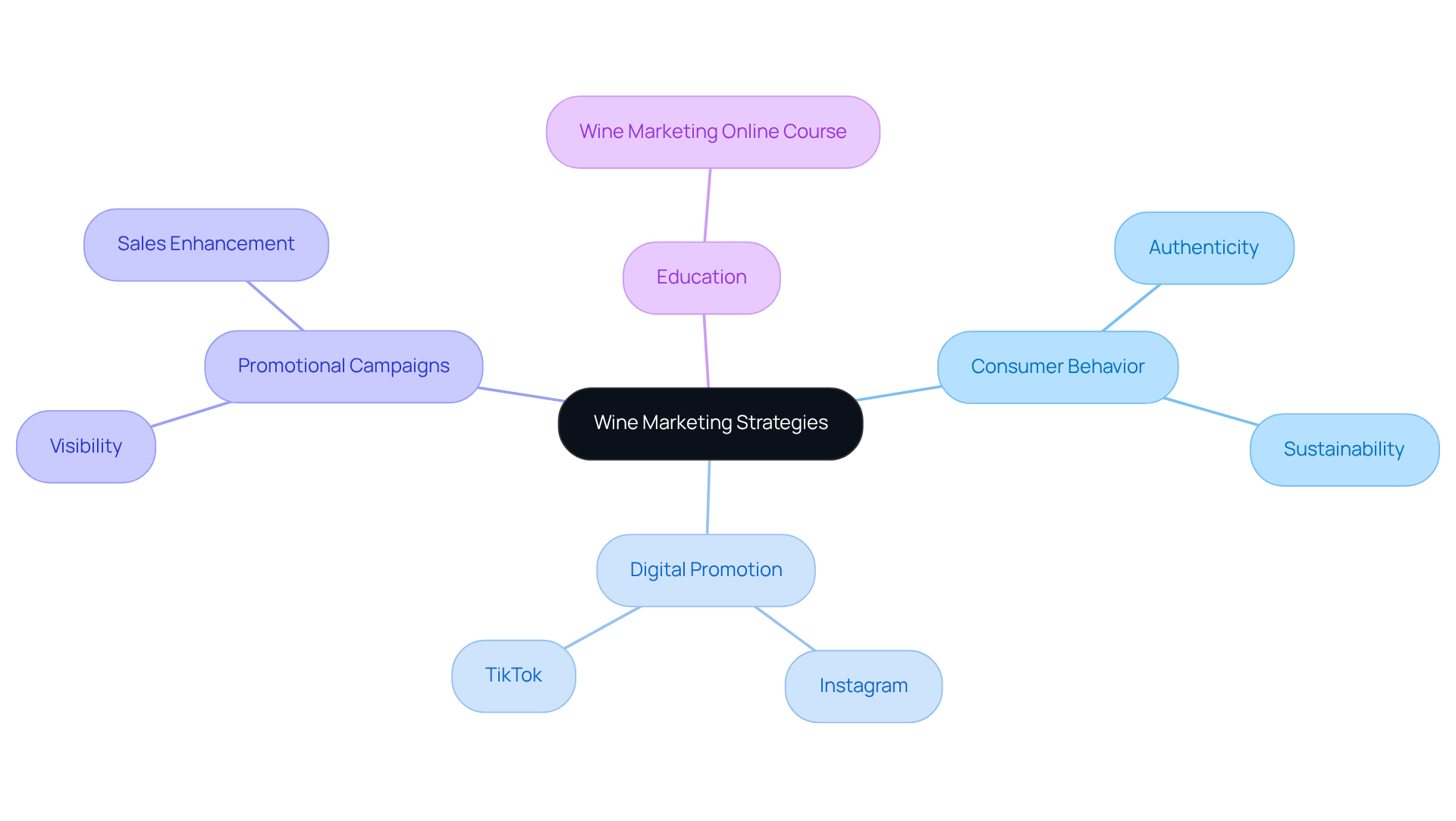
Unlock New Career Opportunities in the Wine Industry
Unlocking new career opportunities in the wine sector is increasingly achievable through education, such as a wine marketing online course, and networking, particularly as family-owned businesses enhance their . Enocap's strategic capital advisory services are pivotal in this transformation, enabling wineries to unlock growth opportunities via tailored debt, equity, and acquisition solutions. As the demand for skilled professionals in promotion, sales, and e-commerce continues to rise, individuals can secure rewarding careers by leveraging their expertise and connections, especially through a wine marketing online course in this evolving landscape.
The beverage industry is projected to experience a 2.2% growth in employment from 2020 to 2025, underscoring the increasing necessity for professionals who can adeptly navigate these changes. Ongoing education and flexibility are crucial for success in this dynamic environment, especially when participating in a wine marketing online course, where creative promotional strategies and consumer engagement are essential. For instance, the surge in digital promotion has led to a 27% increase in new club signups through online channels, emphasizing the demand for experts skilled in these areas. Furthermore, the number of online beverage purchasers has escalated from 1.5 million to 4.1 million, further highlighting the need for digital specialists and e-commerce managers.
Networking within industry circles can facilitate transitions into wine marketing careers, particularly for those who complete a wine marketing online course, as established connections often yield job opportunities and mentorship. By investing in education and nurturing relationships, aspiring professionals can position themselves for success in a competitive landscape that values creativity and strategic thinking, especially by taking a wine marketing online course. This is particularly pertinent as wineries strive to build sustainable direct-to-consumer channels that drive consistent growth.
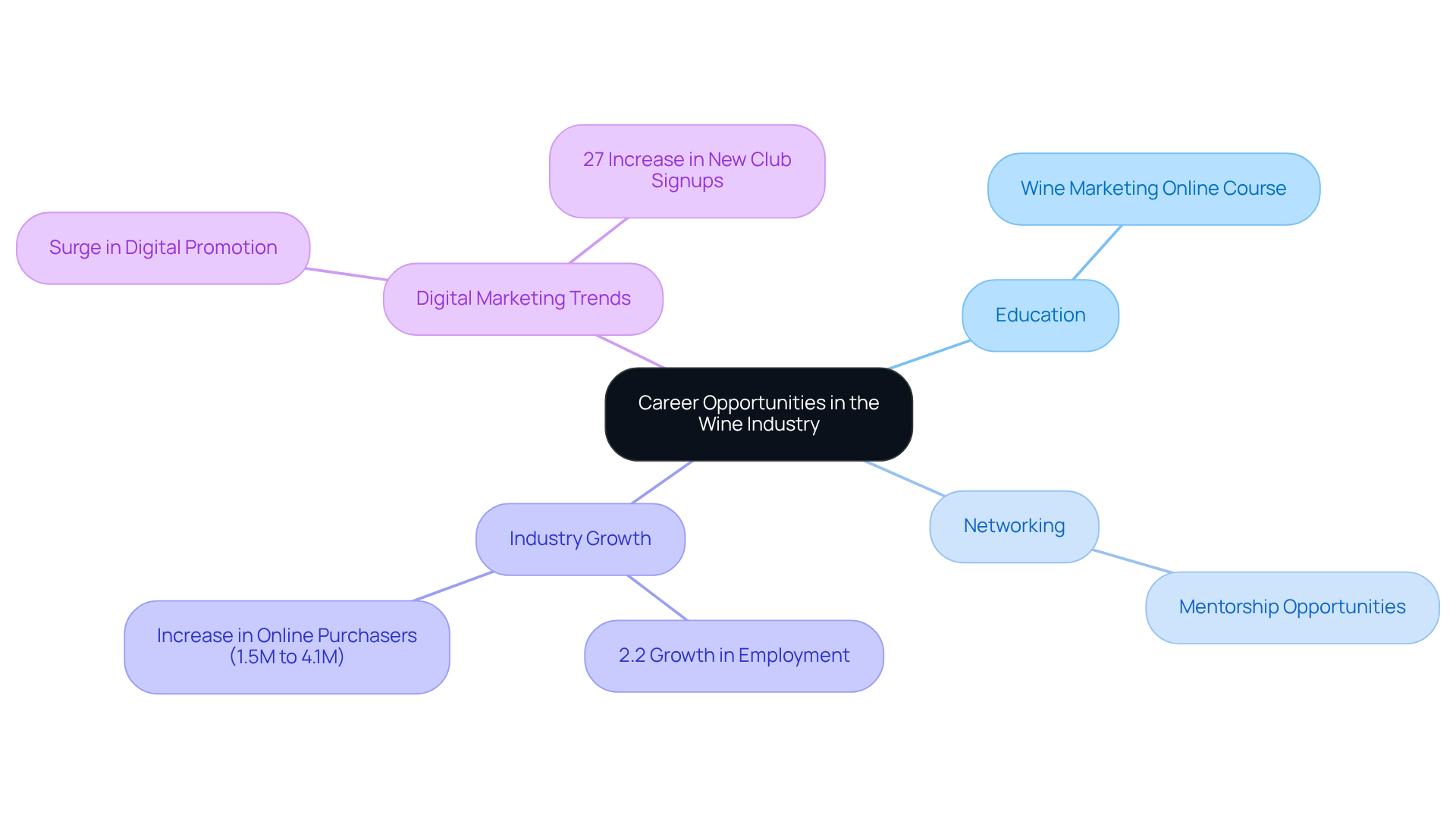
Conclusion
Enrolling in a wine marketing online course presents invaluable advantages for wineries seeking to elevate their direct-to-consumer strategies and enhance their market presence. By harnessing tailored marketing techniques, data-driven insights, and compelling storytelling, vineyards can markedly boost their customer engagement and sales performance, ensuring they remain competitive in this dynamic industry.
Key insights from the article underscore the transformative potential of direct-to-consumer approaches, with Enocap at the forefront, empowering family-owned wineries to flourish. The cultivation of robust sales channels, adaptation to e-commerce trends, and implementation of personalized marketing strategies emerge as critical components for success. Moreover, networking within the industry and pursuing flexible learning opportunities can unveil new career paths and stimulate professional growth.
As the wine industry continues to evolve, embracing education through a wine marketing online course becomes essential for those aspiring to make a significant impact. By investing in knowledge and skills, wineries can not only refine their operational strategies but also secure a prosperous future in the ever-changing landscape of wine marketing.
Frequently Asked Questions
What is Enocap and what does it do for family-owned wineries?
Enocap is a firm that revolutionizes direct-to-consumer (DTC) strategies for family-owned vineyards by establishing robust sales channels, enhancing wine club memberships, and executing effective demand generation strategies, leading to significant e-commerce growth.
How much have Enocap clients reported an increase in online sales?
Clients of Enocap have reported an average increase of 191% in online sales, highlighting the effectiveness of tailored DTC strategies.
Why are strong sales channels important for wineries?
Strong sales channels are crucial as businesses that refine their pricing strategies and strengthen relationships within the on-premise sector are better positioned for future expansion and profitability.
What percentage of operations derived from DTC leads to higher profitability?
According to the 2025 Direct-to-Consumer Wine Report, enterprises that derive 70% of their operations from DTC are significantly more profitable than those primarily relying on wholesale distribution.
What challenges do vineyards face in direct-to-consumer sales?
Vineyards encounter challenges such as shipping obstacles that can hinder their ability to reach wine club members and potential new customers.
How does Enocap help vineyards overcome challenges?
Enocap addresses these challenges with innovative DTC strategies, including demand generation and customer retention programs, to ensure family-owned businesses can thrive.
What role does brand storytelling play for vineyards?
Enhancing brand storytelling allows vineyards to connect with consumers by sharing their history, values, and product traits, which cultivates a memorable brand identity and fosters customer loyalty.
How can storytelling impact customer engagement?
Research indicates that narrative-driven tastings can significantly enhance customer engagement, increasing attention spans by over 30% and fostering positive memories.
What strategies have been successful in the wine industry for storytelling?
Successful examples include Bodega Catena Zapata, which combines traditional marketing with social media, and Eleven Eleven Wines, which focuses on wellness-oriented messaging.
What is essential for attracting younger consumers to wineries?
Producers must prioritize authentic narratives that embody sustainability and craftsmanship, as younger consumers increasingly seek brands that reflect their values.
What demand generation techniques are important for wine sales?
Effective demand generation techniques include utilizing digital promotion strategies, engaging social media campaigns, and targeted promotions to attract new customers.
How have e-commerce wine sales changed during the pandemic?
E-commerce wine sales experienced a remarkable 32% rise during the pandemic, indicating a shift in consumer behavior that vineyards must adapt to.
What is the importance of customizing promotional efforts for vineyards?
Customizing promotional efforts to resonate with the audience is essential, as successful campaigns often incorporate high-quality visuals and genuine storytelling to foster emotional connections with consumers.
What does Doug Frost emphasize about modern storytelling in wine marketing?
Doug Frost emphasizes that modern storytelling through platforms like Instagram is vital for engaging consumers and enhancing brand connection.




